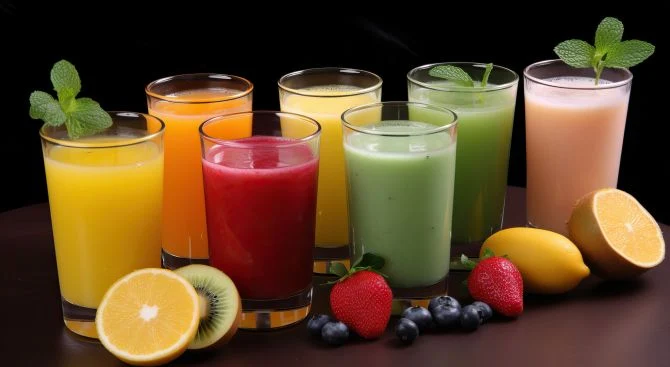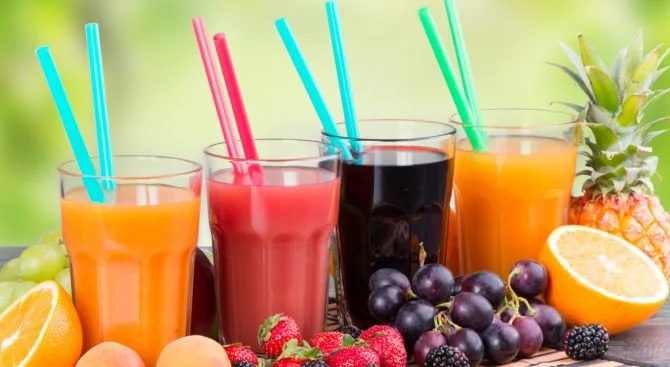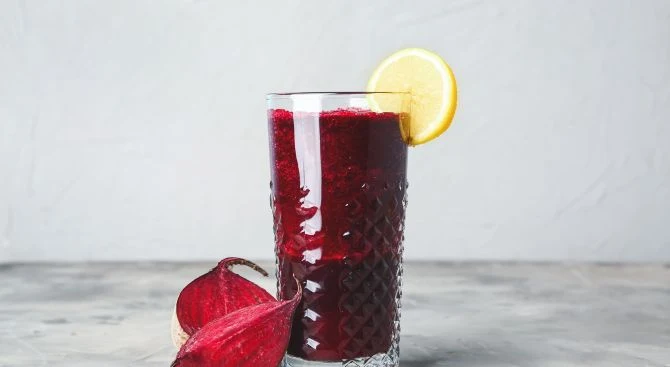Beneficial Juices for Heart Blockage and Cardiovascular Health

Heart blockage, also known as atherosclerosis, occurs when plaque builds up inside the heart's arteries. This narrows the arteries and restricts blood flow, increasing the risk of heart attack and stroke. Making healthy lifestyle changes is key to managing heart blockage, and incorporating certain beneficial juices can further support cardiovascular wellness.
Juices derived from fruits and vegetables provide concentrated amounts of key nutrients with the potential to strengthen the heart and circulatory system. When juicing for heart health, it’s important to focus on fresh, whole produce ingredients over pre-made or artificial juice blends.
This article explores different types of juices with research-backed benefits for heart blockage, high blood pressure, high cholesterol and other cardiovascular issues.
Which Juice is Good For Heart Blockage

- Pomegranate - potently lowers blood pressure, reduces arterial plaque and inflammation, and decreases LDL cholesterol oxidation. Highly effective.
- Beet - aids circulation and blood pressure regulation through its nitrate and betalain antioxidant content. Lowers cardiovascular disease risk factors.
- Black Cherry - reduces inflammatory markers that promote plaque buildup and significantly lowers blood pressure. Protects arteries.
- Cranberry - improves vascular elasticity and blood vessel function. Also beneficially modifies cholesterol levels to support heart health.
- Tomato - with its rich lycopene levels, effectively lowers LDL cholesterol, blood pressure, and chances of plaque formation in arteries.
- Tart Cherry - anthocyanins lower systolic BP, fight LDL cholesterol oxidation, and decrease inflammation tied to atherosclerosis.
Why Juicing is Beneficial
Juicing allows for greater consumption of diverse fruits and veggies since you can blend up produce that you may not enjoy eating whole. Without all the excess fiber, nutrients in juice are very bioavailable to the body and easily absorbed.The polyphenols, carotenoids, vitamins, minerals and enzymes in fruit and vegetable juices have extensive research behind their cardioprotective abilities. Specifically, these nutrients found in beneficial juices may help heart health by:
- Decreasing LDL “bad” cholesterol
- Reducing high blood pressure
- Inhibiting plaque buildup
- Preventing blood clots
- Lowering inflammation and oxidative stress
- Improving vascular function
- Lessening ischemia or inadequate blood flow
Now let’s explore some of the top juices for combating heart blockage and related cardiovascular issues.
Pomegranate Juice

- Pomegranate juice earns its status as one of the most powerful juices for heart health. Rich in protective polyphenols, several studies confirm pomegranate juice’s effectiveness at improving multiple risk factors for heart disease.
- The potent antioxidants called punicalagins give pomegranate juice the ability to reduce arterial plaque, lower inflammation and oxidative stress linked to heart damage, inhibit platelet buildup and lower LDL cholesterol oxidation.
- Research reveals that consuming just under a cup (150ml) of pomegranate juice daily significantly decreases systolic and diastolic blood pressure levels after four weeks. A meta-analysis also found impressive reductions in overall heart blockage stenosis severity after patients drank pomegranate juice.
- Adding just a small amount of pomegranate juice to your daily diet is an impactful yet simple way to promote overall cardiovascular function and longevity.
Beet Juice

- Beets contain a group of phytonutrients called betalains which exhibit potent antioxidant and anti-inflammatory activities. One key betalain called betanin has been shown to protect LDL cholesterol from oxidative damage linked to plaque formation.
- Drinking beet juice can also significantly lower blood pressure levels, likely owing to the vegetable’s high inorganic nitrate content. Nitrates help open up blood vessels and improve vascular function.
- In fact, studies utilizing about one cup (250ml) of beet juice show reductions in blood pressure comparable to some pharmaceutical medications after just a few hours. Participants who drank beet juice for four weeks likewise experienced impressive declines in both systolic and diastolic pressure.
- With benefits for circulation, blood pressure regulation and vascular health, working beet juice into your diet can bolster the heart against various risk factors for blockage.
Black Cherry Juice
- The deep red pigments of black cherry juice indicate the presence of heart-helpful anthocyanin antioxidants also found in other dark fruits and berries.
- Several animal studies show black cherry juice limits cardiovascular damage following restricted oxygen flow episodes. Specifically in humans, drinking black cherry juice has been found to reduce inflammatory markers that can trigger atherosclerotic plaque development.
- Additionally, a study in postoperative coronary artery bypass patients revealed significantly faster declines in systolic and diastolic blood pressure with black cherry juice consumption. After drinking about two cups daily for just three days, patients’ blood pressure dropped over 20 points on average.
- Anthocyanins and other polyphenols make antioxidant-rich black cherry juice useful for preventing the vascular dysfunction that contributes to blockage formation.
Cranberry Juice
- While often touted as a treatment for urinary tract infections, cranberry juice also has notable benefits for cardiovascular wellness.
- The polyphenols in cranberries show promise for improving circulation and reducing the stiffness and poor elasticity of blood vessels caused by plaque buildup. Specifically, cranberry juice consumption helps boost flow-mediated dilation of arteries which is considered a reliable early indicator of eventual atherosclerosis.
- Research also indicates that drinking about two cups (500ml) of cranberry juice daily helps lower key risk markers like LDL cholesterol oxidation while also raising levels of HDL “good” cholesterol. Over an eight week period, study participants drinking cranberry juice experienced a 9% drop in LDL levels alongside an 8% increase in protective HDL cholesterol.
- With vascular-protective antioxidants, cranberry juice strengthens blood vessels to help delay plaque formation.
Tomato Juice
- Adding tomato juice to your diet provides an easy and nutritious way to promote cardiovascular health thanks to the vegetable’s rich supply of the antioxidant lycopene.
- Studies demonstrate that consuming increased amounts of lycopene lowers LDL cholesterol as well as risk of plaque formation in carotid arteries. Drinking just over one cup (250ml) of tomato juice covered in cheesecloth daily for two months lowered participants’ LDL cholesterol an average of over 10% in research.
- Tomato juice consumption has also been shown effective at lowering blood pressure, likely owing to the juice’s high potassium levels. One study in overweight individuals found significant declines in both systolic and diastolic pressure after supplementing with tomato juice for six weeks.
- With benefits for cholesterol levels, hypertension, oxidative stress and more, tomato juice makes a smart choice for defending against heart blockage triggers.
Tart Cherry Juice
- Similar to black cherry juice, tart cherry juice derived from Montmorency cherries contains high concentrations of heart-helpful anthocyanins. The deep red pigments of tart cherries are tied to substantial cardiovascular benefits.
- Studies reveal that drinking tart cherry juice increases circulating levels of antioxidant enzymes that protect against LDL cholesterol oxidation. Oxidized LDL is more likely to stick to artery walls and form plaque. Tart cherry juice also reduces inflammatory markers linked with atherosclerosis.
- Additionally, research demonstrates that consuming about two cups (480mL) of tart cherry juice daily significantly lowers systolic blood pressure in older adults with early hypertension. After drinking tart cherry juice for 12 weeks, participants’ systolic blood pressure declined over 7 points on average.
- With inflammation-fighting antioxidants, tart cherry juice enhances overall cardiovascular wellness to help prevent blockage issues.
Apple Juice
- While especially known for gut and digestive health, unfiltered and additive-free apple juice also holds benefits for your ticker thanks to beneficial polyphenols.
- Research reveals that drinking roughly two cups (500mL) of apple juice daily effectively decreases LDL cholesterol oxidation while elevating antioxidant activity in the blood. These effects help prevent the type of inflammatory vascular damage involved in plaque formation.
- Another study found that consuming two cups of apple juice diluted with water significantly lowered participant’s levels of the amino acid homocysteine. High homocysteine is tied to greater incidence of atherosclerosis and heart attacks.
- The polyphenol compounds in apple juice seem especially adept at reducing inflammation and cholesterol oxidation that degrade arteries over time, making it protective against blockage issues.
Grape Juice
- The skins and seeds of grapes, especially darker purple Concord varieties, are packed with antioxidants like resveratrol along with flavonoids like quercetin. These beneficial plant chemicals provide grape juice with anti-inflammatory heart advantages.
- Studies utilizing Concord grape juice in patients undergoing coronary bypass surgery show significant drops in inflammatory IL-6 levels following juice consumption. Lower systemic inflammation limits plaque formation in arteries.
- Research also confirms grape juice’s effectiveness at reducing LDL cholesterol oxidation while boosting beneficial HDL levels over a two month span. These improvements help stop the development of blockages.
- With circulation-boosting nitric oxide metabolites and heart health-promoting polyphenols, incorporating some grape juice into your diet can strengthen your cardiovascular system.
Important Considerations
- To maximize results, opt for raw, homemade juices over highly processed bottled varieties whenever possible. Using organic produce is also ideal to avoid pesticides. Most research utilizes juicing doses around 8 to 24 fluid ounces spread throughout the day.
- Be sure not to solely rely on juices over whole fruits and veggies since their fiber content confers additional benefits. Those with certain medical conditions and prescriptions should check with their doctor before adding high nitrate juices like beet or other juices.
In conclusion, juicing antioxidant and nutrient-dense fruits and vegetables provides circulatory advantages that bolster cardiovascular health. Various juices like pomegranate, beet, black cherry, cranberry and more have proven abilities to lower risk factors for heart blockage like high blood pressure, inflammation, oxidized cholesterol and plaque formation. Combining these science-backed juices into your diet serves as an impactful and sustainable way to nourish your heart and prevent blockage issues naturally.
Post a Comment